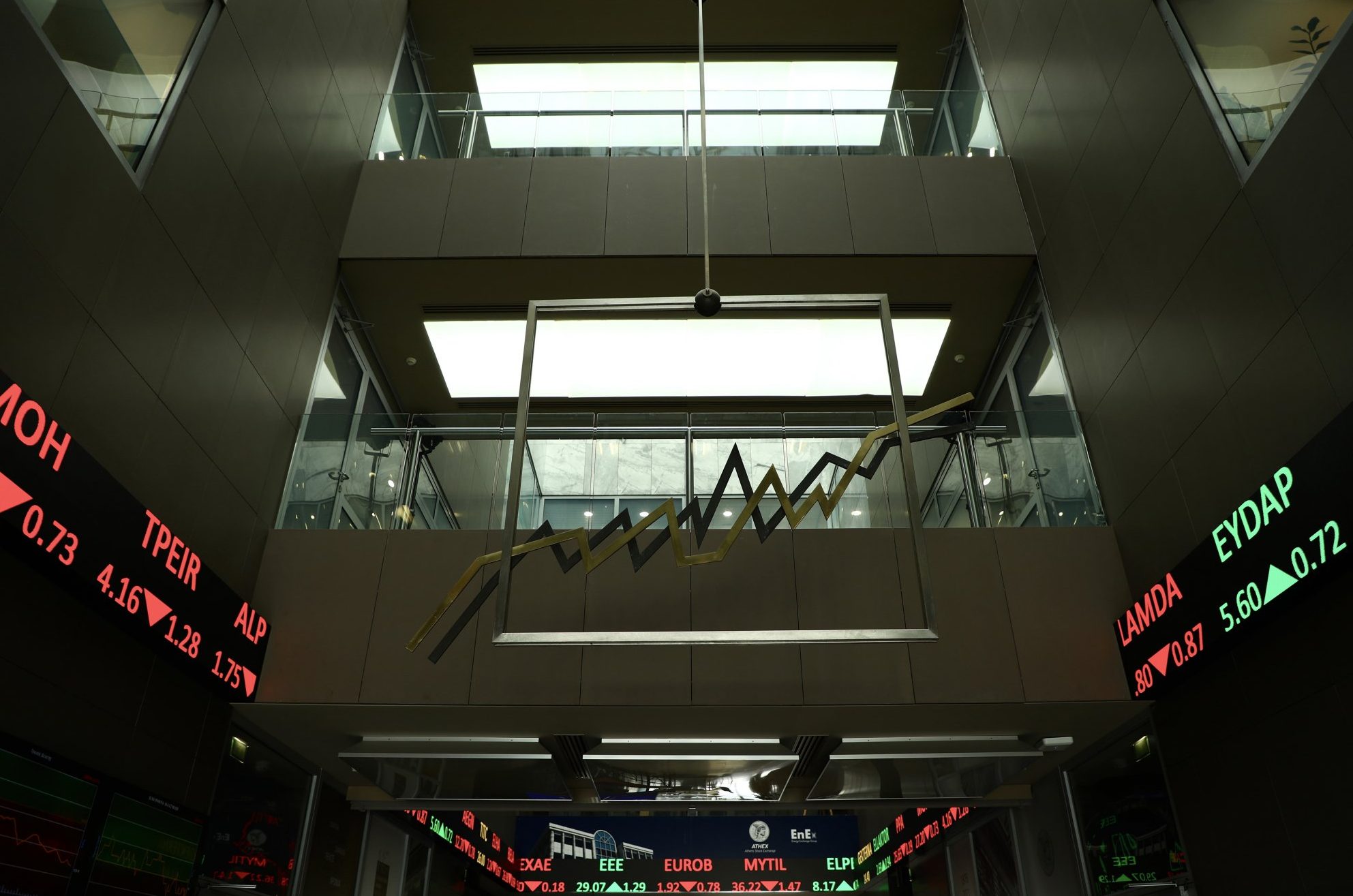The Athens Stock Exchange is in the midst of the global sell-off, with the General Index falling to levels of 5% and below 1,400 points. The losses were overwhelming for banking shares, but also for other securities that had recently moved upwards. The value of the transactions amounts to 28.14 million euros.
The plunge was seen as imported by market players, after sharp declines in international markets late last week and a particularly negative opening today in Asia and futures pointing to further declines on Wall Street.
The large-cap index is down 4.69%, while the mid-cap index is down 4.52%. All the shares of the high are moving down, and the biggest fall is recorded by the shares of Eurobank (-6.71%), Aegean (-6.79%), Autohellas (-6.41%) and Viohalco (-6, 12%).
Indicative of the prevailing climate is the fact that no shares register an increase, while 92 move downwards and 9 remain stable.
The week started with a hammer especially in Japan but also in Korea and other Asian markets after the plunge in Wall Street on Friday due to fears of a recession in the US economy. The Nikkei index in Tokyo lost 12.4% in its biggest unit loss in history due to a mass exodus of players looking to reduce their exposure to investment risk.
Forecasts for the opening of Wall Street on Monday were also particularly negative with futures at 11am Greek time showing a decline in the Nasdaq high-tech stock market by 6.5% and the benchmark S&P 500 by 3%.
Lesser – at least so far – were the pressures that Europe received, waiting for the opening in the USA. London opened down 2%, Paris down 2.6% and Frankfurt down 2.8%.
The situation has now started to increase the clamor for more and bigger interest rate cuts – even extraordinary – from the US Federal Reserve and the European Central Bank.
Shock for three reasons
The sell-off in recent days has been fueled by fresh concerns about the path of the US and European economies, combined with negative results for many listed mainly in the technology sector, whose shares had climbed to record levels in July on expectations of artificial intelligence . It is also starting to create a scenario that the FED made a mistake and delayed tapering longer than it should have. That’s driving more investors into the dollar and bonds, leaving stocks – whose prices hit record highs in July.
Eyes on central banks
With new data showing a worsening labor market in the US and challenges for industrial production in Europe, bets are rising again for looser monetary policy from the Fed and ECB.
Especially in the US, it has started to be said that the Federal Reserve delayed longer than it would have liked to proceed with the first reduction of interest rates in the last two years or so. Expectations are now building for a larger reduction in September, by 50 instead of 25 basis points. Unless the Fed takes extraordinary action before next month’s scheduled meeting. Markets are also giving a 60% chance of a 50 basis point rate cut by the ECB next month as well. Expectations for a reduction in interest rates are also being created for September by the Bank of England.
The role of gen
In Japan, the 12% rally of the yen since the middle of last month played an important role in the vertical dive, since all the previous period investors were buying there and due to the low exchange rate that the Japanese currency had at the time.
It is indicative that in Tokyo the Nikkei fell today Monday by 4,451 points, surpassing even the 3,836 points it had lost on “Black Monday” in October 1987. At that time, of course, the index was at lower levels than today.
Japan’s broader Topix index closed down 12.2%, losing all of its 2024 gains. In Japan and Korea, the stock exchanges’ automated systems had to temporarily halt trading due to the large and sudden drop, as they are designed to do in such cases. The Kospi index in South Korea lost 9% while the situation was cooler in China’s capital markets.
Japanese market players who spoke to Bloomberg and the Financial Times spoke of a significant correction and efforts to reduce risk by large investment funds. An important role was also played by the yen, which has strengthened by 12% against the dollar in just two and a half weeks. Today alone, the Japanese currency strengthened by 2.2% to 142.3 yen per dollar.
Source: OT
#Athens #Stock #Exchange #moving #vortex #global #selloff


